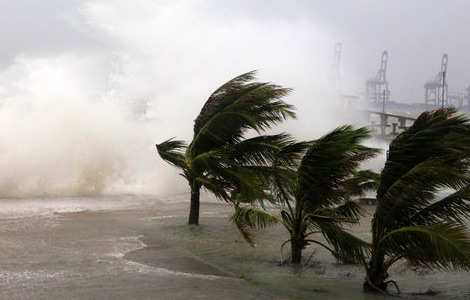Rising waves of sea disputes
Updated: 2011-09-29 08:40
By Zhao Yinan (China Daily)
|
|||||||||||
Economic crisis and changes in policies increase corporate fights
BEIJING - Authorities are addressing a significant increase in maritime disputes that have taken place along with the country's thriving shipping economy, a senior judge said.
Liu Guixiang, president of the No 4 Civil Court under the Supreme People's Court, said that in the first half this year courts at all levels received about 3,896 cases of first instance, a year-on-year increase of 28 percent.
Apart from economic development, Liu said other factors such as the financial crisis and China's policy changes also contributed to the growth of conflicts, as well as disputes over freight contracts and collisions.
"Overseas companies whose performances have declined since the financial crisis were sued because they failed to carry out their commitment in the contract," he said.
And some small domestic businesses who had only recently been allowed to deal directly with foreign companies lacked experience and legal knowledge of international trade, he said.
Recent years have also witnessed an increase of applications to establish a marine compensation fund, disputes over marine engineering projects and sailor's back pay.
Liu said labor conflicts started to grow after the country's Labor Contract Law was enacted in 2008, when the awareness of labor rights increased among sailors.
China's courts have received 780 cases of labor contract disputes in the first six months, taking up almost a quarter of the total marine cases.
Liu admitted judges are facing challenges since solving oceanic conflicts requires more professional knowledge than other judicial cases.
At least 20 judges in the country are selected to acquire personal experience about marine affairs for one to three months each year. The top court also organizes training classes to send judges to overseas countries, such as Australia, to learn from their counterparts.
Deng Jingbiao, a judge from the maritime court in Shenzhen, Guangdong province, told China Daily such training programs have helped local judges be more confident and familiar with professional maritime issues, which usually involve foreign litigants.
Earlier this year, Deng helped mediate a ship mortgage dispute in which both the plaintiff and the defendant were from Germany, but who had filed their case in a Chinese maritime court.
The two parties reached an agreement of 1.7 billion yuan ($260 million) after Deng's mediation.
"It showed China's maritime courts have established a good international image and have proved their credibility in the world, and that's the reason why both the foreign litigants choose China to solve their conflict," he said.
The No 4 Court is designated to deal with foreign-related maritime and commercial affairs. It aims to promote the development of a maritime economy and establish unified judicial discretion in the area.
China has also established 10 local maritime courts in coastal cities since 1984.
China had 12 of the 20 biggest harbors around the globe in 2010, according to a shipping industry white book published by the Ministry of Transport.
The book also said Shanghai had replaced Singapore as the world's largest container port. In 2010, China's cargo handling capacity reached 893 million tons, an increase of 16.7 percent year-on-year.
Hot Topics
Libya conflict, Gaddafi, Oil spill, Palace Museum scandal, Inflation, Japan's new PM, Trapped miners, Mooncake tax, Weekly photos, Hurricane Irene
Editor's Picks

|

|

|

|

|

|







